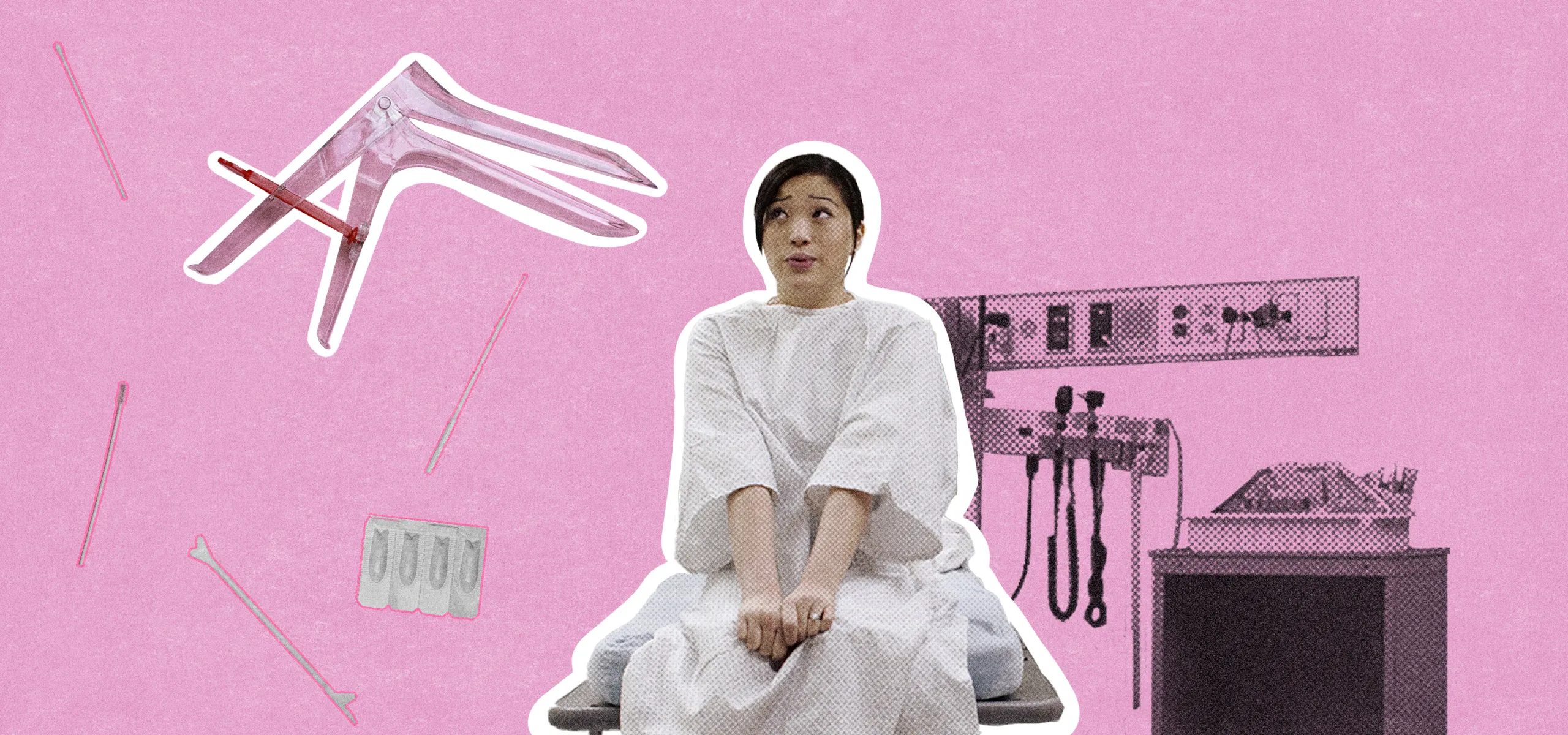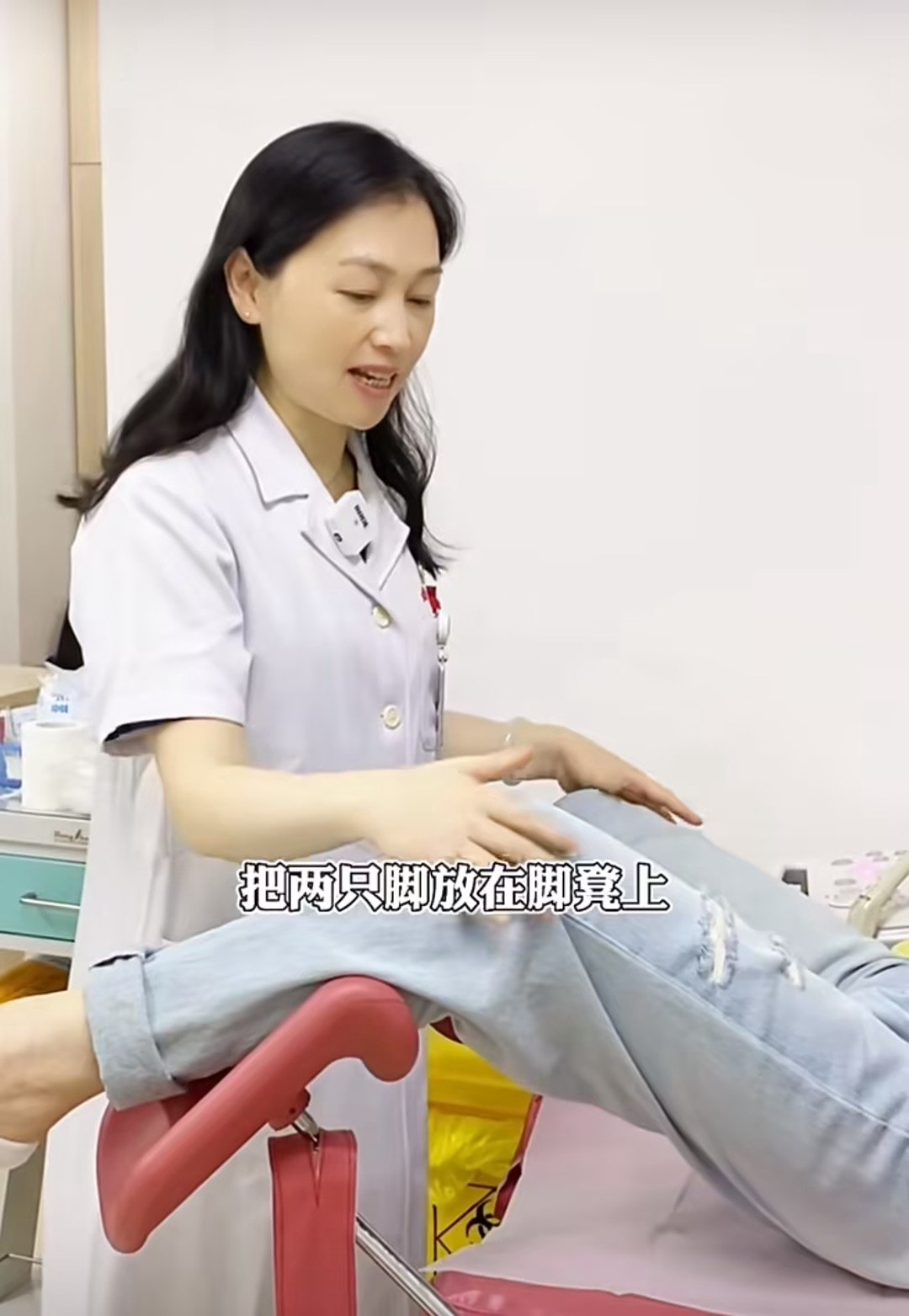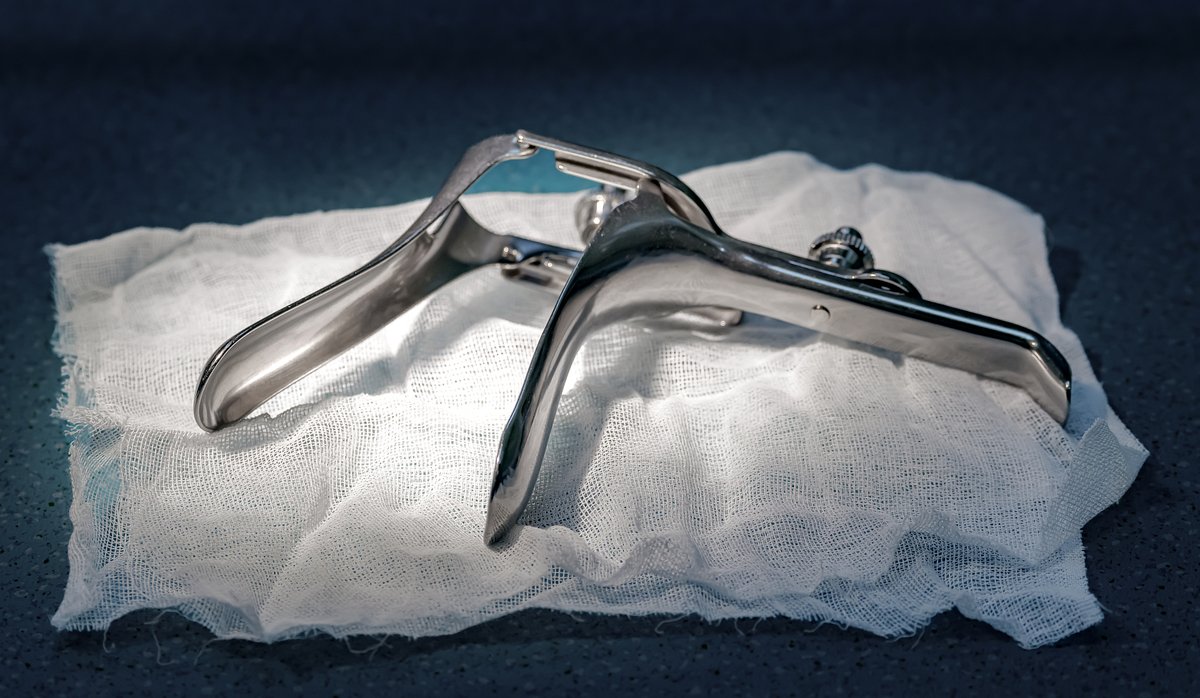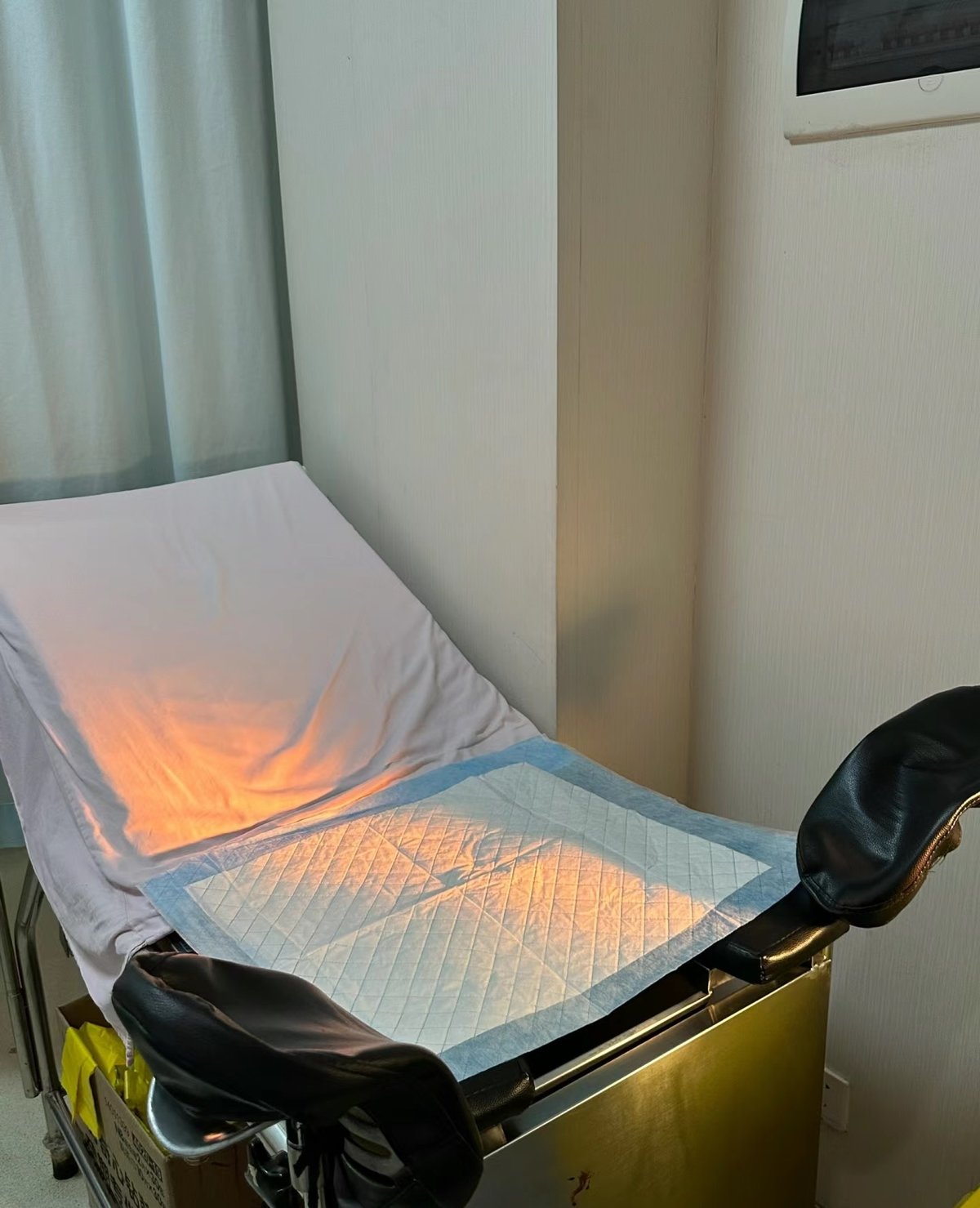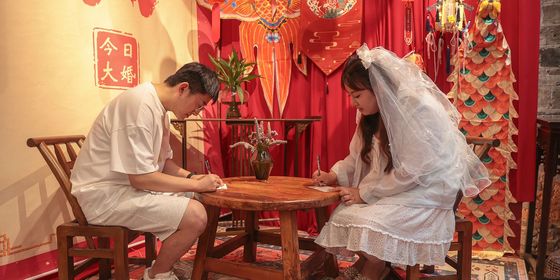Chinese women are speaking up about pain and shame on the gynecologist’s table
In December, 23-year-old Wu Jiayi emerged, shaking, from the hospital. Though her gynecological appointment had only lasted 15 minutes, Wu, who agreed to be interviewed under a pseudonym, had spent almost an hour in the hospital bathroom, bleeding into the toilet after an invasive exam.
Her story is far from unique. Recently, women in China have begun to speak out about feeling pain and humiliation during sexual health examinations that they believe to be excessively invasive, shameful, and rough. A related tag has been viewed more than 240 million times on the microblogging platform Weibo, with many patients calling for reforms to the examination procedures.
Though these calls have yet to attract any attention from the government, dozens of gynecologists have taken to social media to respond and to shed light on the importance of regular sexual health checkups. In the process, this doctor-patient dialogue has given transparency to previously taboo topics in female sexual health in China.
Shame and stigma
“Doctors always ask me whether I’m sexually active when they see that I’m uncomfortable [with the exam],” Wu tells TWOC. “Some of them sound so judgmental, like I should be able to handle a speculum [the primary instrument of gynecological exams] if I’ve had sex before.”
Wu does not believe that a patient’s sexual history influences their degree of comfort with the exam, and wishes doctors would focus on their patients’ comfort instead of making moral judgments. While it is routine for doctors to ask about a patient’s sexual history, which can help determine the patient’s risk of sexually transmitted diseases, many patients are reluctant to share this information. This is in part because gynecological practices in China have historically been guided by archaic assumptions about virginity and marriage.
Learn more about China’s feminist movements:
- Her Havens: The Struggle Over Female-Only Spaces
- K-Pop Roadshows: A Space for Liberation or Objectification?
- The Female-Perspective Films Enriching Chinese Cinema
Even in modern China, there is a widespread belief that an intact hymen is proof of a woman’s virginity. Hymen-reconstruction surgery continues to find a market. A 2015 article by US-based feminist news site Jezebel found that some Chinese hospitals refused to administer gynecology exams to women who’ve never had penetrative sex before, citing the liability of damaging an unbroken hymen.
In the exam room, patients who were sexually active but unmarried found themselves treated much more rudely than their married counterparts. “They were treating [an unmarried woman] like trash,” 22-year-old Crystal (pseudonym) told Jezebel. Crystal had lied on her intake form—indicating that she was married—and received gentle treatment from the doctors and nurses. Meanwhile, she recalled, unmarried but sexually active women were forced “to make very personal admissions in public,” and were sent to the end of the line to wait.
“Women [in China] aren’t used to [invasive exams] because there are very few invasive procedures in traditional Chinese medicine,” Dr. Ling Xiu, a Hebei province-based gynecologist who asked to be referred to with a pseudonym, tells TWOC. According to her, traditional Chinese medicine (TCM) generally favors minimally invasive approaches over in-depth examinations of a single body part. Traditional Chinese gynecological exams involve tracking abdominal palpitations and holistic surveys of the body.
Pain behind the speculum
In a survey conducted by the Chinese magazine Portrait in June of this year, 99 percent of over 1,100 respondents who underwent gynecological exams described the speculum as “cold” or “painful.” Several patients even reported tearing or bleeding of the vaginal canal during or after the exam.
The yazuiqian (鸭嘴钳, literally “duck-bill forceps”), or speculum, is a metal or plastic instrument inserted into a bodily orifice (in this case, the vagina) and expanded to hold it open. Its invasiveness has prompted thousands of patients to seek answers online to questions like “How many inches will the speculum open?” and to share their experiences on the social media platform Xiaohongshu, which boasts a majority-female audience.
“I have to lie down in a position where I have no control...and doctors take it for granted that women can suffer silently through their pain,” says Xiaohongshu influencer Liang Xiaoxiao in a video that received over 40,000 likes. Liang has had children and gone through countless checkups, but she still can’t shake her fear of the exam. “Why have we not developed new technologies for gynecological checkups?” she demands. “At this point, we should be able to.”
Dozens of doctors and influencers have taken to social media to ease patients’ worries surrounding the speculum. Many of them begin by clarifying the necessity of the instrument and demonstrating its use on plastic models. However, few doctors have addressed the instrument’s origin, which lies in American slavery.
Between 1845 and 1849, plantation doctor James Marion Sims conducted dozens of experimental surgeries using the speculum on at least 12 Black women and girls. The most famous of them was Annacay Jackson, known widely as Anarcha Westcott, who was still a teenager when Sims first operated on her. None of the women and girls received anesthesia, and none gave consent.
Sims has long since been condemned by medical professionals and feminists alike, but the speculum continues to be the main instrument used in gynecological exams across the world. Patients, too, continue to assume a passive supine position during exams. In her 1976 book Of Woman Born, American feminist scholar Adrienne Rich criticizes the unequal power dynamic in gynecological and obstetric exams, likening the patient’s “completely passive body” to a “mannequin,” and describing the gynecologist or obstetrician as the active “hero” of the practice.
Traditional Chinese gynecology also reflected gendered power dynamics. Chinese gynecology first became standardized in the Tang dynasty (618 – 907). Doctors have published at least 300 gynecological texts in the centuries since then. In 1620, Ming dynasty (1368 – 1644) doctor Wu Zhiwang (武之望) published one of the most famous handbooks on female health, A Synopsis of Treating Women’s Diseases (《济阴纲目》), in which he asserted that “women are not aware of their illnesses” and that “doctors must confirm a woman’s conditions.” The book was reprinted over 40 times throughout the Ming and Qing (1616 – 1911) dynasties.
This patient-doctor dynamic is echoed today, as patients place both their physical and emotional well-being in the hands of the gynecologist. “The speculum hurts far less than a doctor who has no sympathy,” a feminist influencer under the handle Baozang Tujie said in a video that received over 7,000 likes on Xiaohongshu. “We’re already in such a vulnerable state. It’s even more humiliating to be berated.”
Building trust
In the survey by Portrait magazine, over half of all respondents reported that their physical comfort corresponded directly with their doctors’ attitudes. Sympathetic doctors, particularly those who explained the procedure and listened to patients’ concerns, put patients at ease. However, patients who were subjected to scorn or impatience found themselves unable to relax during the exam, and therefore experienced greater pain.
“There are many taboos around reproductive health,” says Dr. Ling. “It’s good to approach them with objectivity and compassion.” She urges doctors to prioritize their patients’ comfort and consent. “I tell each of my patients what to expect in a gynecological exam, so they won’t be surprised or confused,” she tells TWOC.
With a gentle, non-judgmental attitude, Dr. Ling finds that her patients will trust her with their own doubts and fears, and will be more honest about their own sexual histories. Over the years, she has listened to hundreds of stories about assault, infertility, and childbirth, and says these moments of vulnerability are the most important part of her profession.
Unfortunately, this meticulousness is often lost in the bustle of a major hospital, where doctors must often choose between efficiency and patient care. According to statistics from the National Health Commission, there were only 2.64 licensed doctors per 1,000 people in China as of 2022. The sheer number of patients means doctors lack the time and mental capacity to comfort patients or prepare them for the exams. Some younger gynecologists forgo manual exams altogether, opting instead for ultrasounds or other high-tech solutions.
Dr. Wang Huiying, director of gynecology at the Shenzhen Hospital of the Beijing University of Chinese Medicine, cautions against this turn to technology. According to her, a manual exam allows a doctor to test for body heat, organ elasticity, or abnormal pain, qualities that are much harder to identify with an ultrasound. “An experienced gynecologist can use a single gynecological exam to diagnose issues in the entire pelvis,” she tells TWOC.
Dr. Wang, also a TCM practitioner, has developed a practice combining Chinese and Western medicine. She believes that listening to patients and tailoring treatments to each individual patient are two principles paramount to TCM. “It doesn’t matter what kind of technology is introduced,” she says. “If the doctor is inept, the exam will be done poorly.”
However, it’s not only the doctors who need an attitude change. Dr. Wang feels that Shenzhen’s young, educated, and affluent patients tend to trust advice from online platforms like Baidu and Xiaohongshu more than doctors, and will even challenge a doctor’s expertise with the information they found online.
Ultimately, she advises doctors to approach each patient with as much transparency and patience as possible, and for patients to ask questions: not only about what the procedures are, but why they are necessary. “I hope patients remember that we’re on their side,” she says. “There’s a balance between standing up for yourself and being uncooperative. Communication goes two ways.”
The Pushback Against Invasive Sexual Health Exams in China is a story from our issue, “Back to the Wild.” To read the entire issue, become a subscriber and receive the full magazine.





